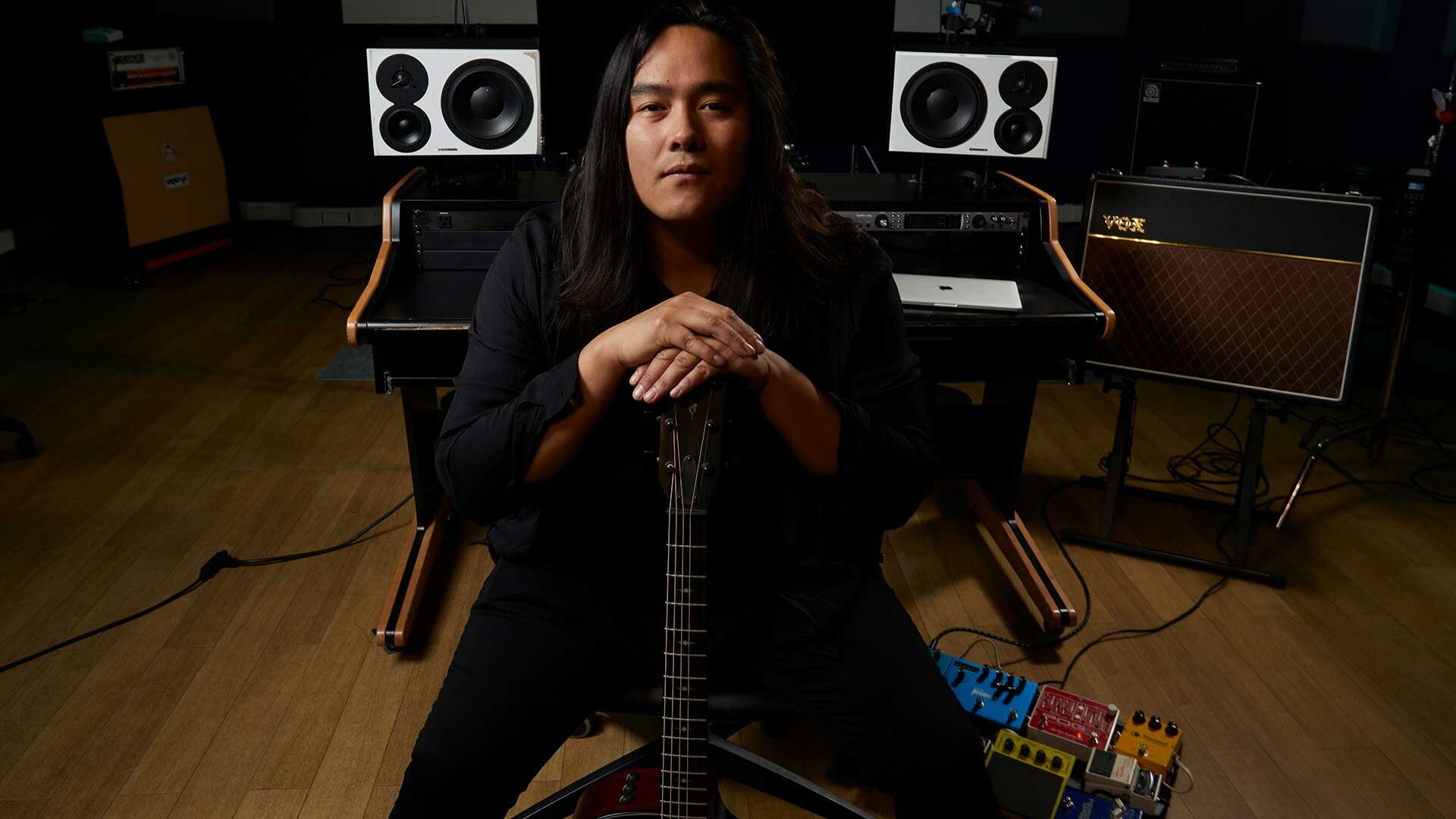For Oji-Cree singer-songwriter Aysanabee, it’s a reclamation of his identity that plays a powerful, and empowering, role in the music he’s making against a backdrop of the resurgence of Indigenous cultures and languages. A decision…
By NowPlayingToronto
A decision to choose an artist name that has far-reaching meaning. An almost-didn’t-happen submission to play at a music summit. A series of conversations with a grandfather. The first Indigenous woman-owned record company in the country. Self-discovery through music. These are just some of the elements that came together to play a role in the meteoric rise of singer-songwriter Aysanabee.
In 2020, the first signee of Ishkōdé Records, co-founded by Amanda Rheaume and ShoShona Kish, was trying to convince himself he’d be happy making music as a hobby. But an ad asking for submissions to play at the International Indigenous Music Summit changed his trajectory. Aysanabee’s video submission immediately caught the attention of Amanda and ShoShona, who also co-founded the summit. In 2021, they signed the Sandy Lake First Nation member to their label. That’s where his grandfather, Watin, enters the story. Aysanabee wrote his debut offering, named for and inspired by his grandfather, after a series of conversations that make up the album’s content. With Watin recently passing peacefully surrounded by family, his story is now immortalized in his grandson’s soulful anthems.
Equally indie, soul, and electronic, Aysanabee’s music has charted on Billboard Canada, CBC Music, and the Alternative Radio Chart — making him the first Indigenous Canadian artist ever to top that chart. It has earned him a JUNO nomination. It has seen him play nearly 100 shows in a year. And, perhaps most importantly, Aysanabee’s music has become a way to connect with family history, reclaim his identity, and heal.
Watch Aysanabee share his story.
Toronto is a city full of inspiration. Here’s where Aysanabee enjoys making music, listening to music, and finding inspiration — and how you can enjoy some of his favourite spots.
“Massey Hall. It’s big but it’s still intimate. You feel like you can still see everyone’s faces.”
With a 127-year history, Massey Hall is a staple in the Toronto cultural scene. Having recently undergone the biggest renovation since it opened in 1894, Massey Hall has expanded to include the Allied Music Centre, a new structure that is connected to the historic hall and contains music venue TD Music Hall. Did you know TD Music Hall’s inaugural concert featured Indigenous group The Halluci Nation?
“That’s a toss-up. I love Massey but I also love History. They have really great sound there.”
A collaboration between Toronto rapper Drake and Live Nation, History is situated in the city’s east-end Beaches neighbourhood, near Woodbine Park and Ashbridges Bay. That means you can head to the beach for a midnight stroll after a concert.
“I love a nice bike ride on the Don Valley Trail to clear my head.”
If you’re like Aysanabee and enjoy riding your bike, this is the place to do it. At 200-hectares, the Don River Valley Park is Toronto’s largest urban park. It provides access to the downtown core through connections to other bike lanes, recreational trails, and parks. Head to Lower Don River Valley Park (between the river and the trail north of the Prince Edward Viaduct) to see the public art installation Monsters for beauty, permanence and individuality by Omaskêko Cree artist Duane Linklater from Moose Cree First Nation. There’s also plenty of other ways to see Toronto by bike.
“Busy. Noisy. What’s a word that represents people doing it themselves? Scrappy. I like that one.”
Keep browsing Now Playing Toronto to discover your own definition.
Originally hailing from Thunder Bay, Classic Roots is an award-winning producer and DJ whose music blends electronica and traditional Anishinaabe sounds. Through the inclusion of First Nations drumming and singing in his electronic compositions, Classic Roots acknowledges the continued resilience of his nation.
JUNO-nominated Jayli Wolf, originally from Creston, B.C., is a Queer Anishinaabe/Cree Alt-Pop singer-songwriter-producer and filmmaker. As a by-product of the controversial Sixties Scoop and a survivor of a doomsday cult, Jayli’s life experiences feature predominantly in her music, which can be described as dark folk music.
Raised in Blind River, Evan Redsky of the Mississauga First Nation mixes country and Americana in his music and includes the struggles Indigenous peoples face within his lyrics. He hopes to use music, which he says is a tool for healing and understanding, to raise awareness of Indigenous injustices and stories.
Musician Daniel Monkman is originally from Selkirk, Manitoba and a member of the Brokenhead Ojibway Nation. His band Zoon blends shoegaze rock with elements of traditional First Nations music. In 2022, Daniel and fellow musician Adam Sturgeon, Status/Non-Status, came together to create Indie rock duo OMBIIGIZI and collaborate on an album that unpacks and honours family histories.
Interview by: Meghan Yuri Young
Video by: Kelvin Omori
Photography by: Max Power
Words by: Izabela Shubair

